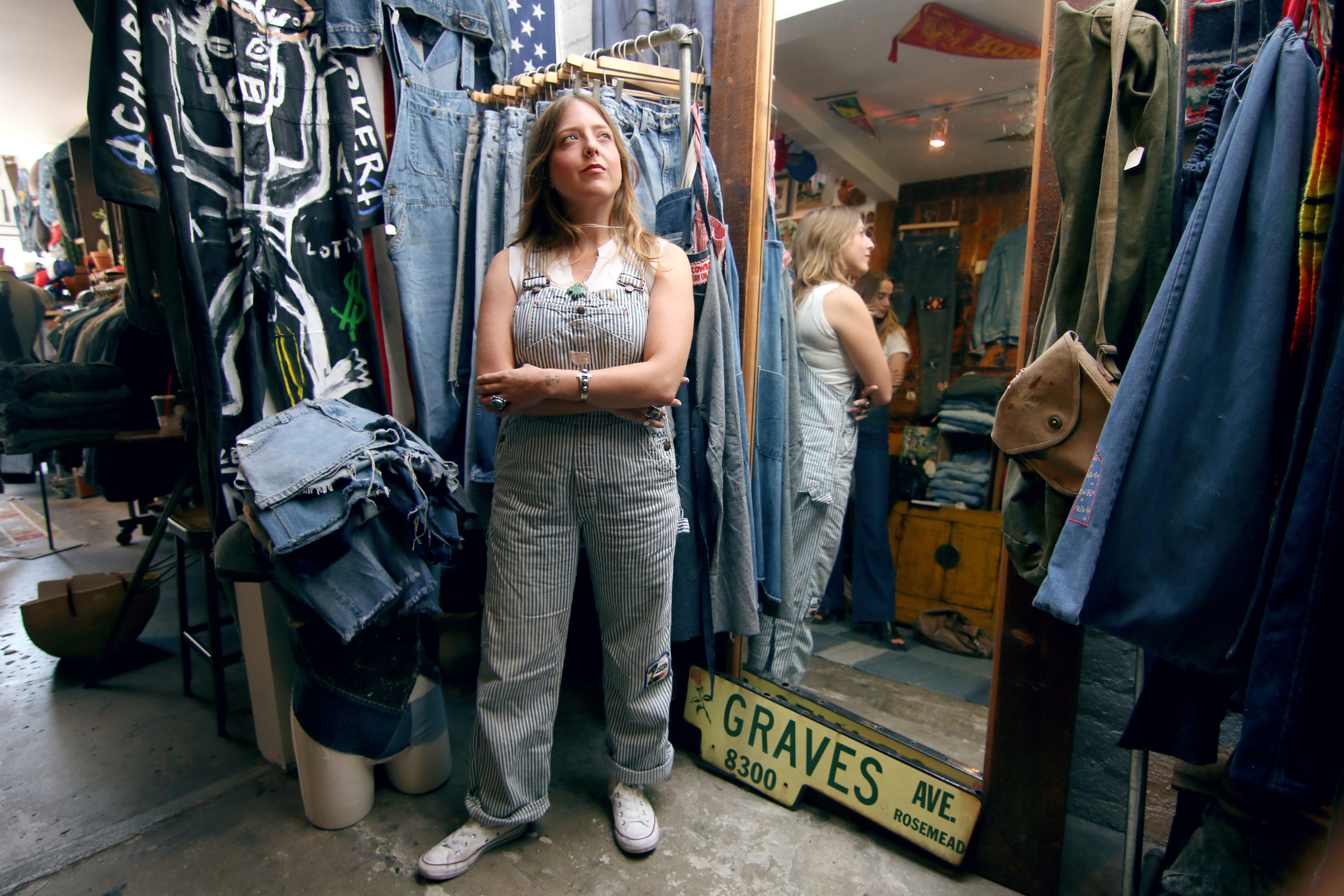
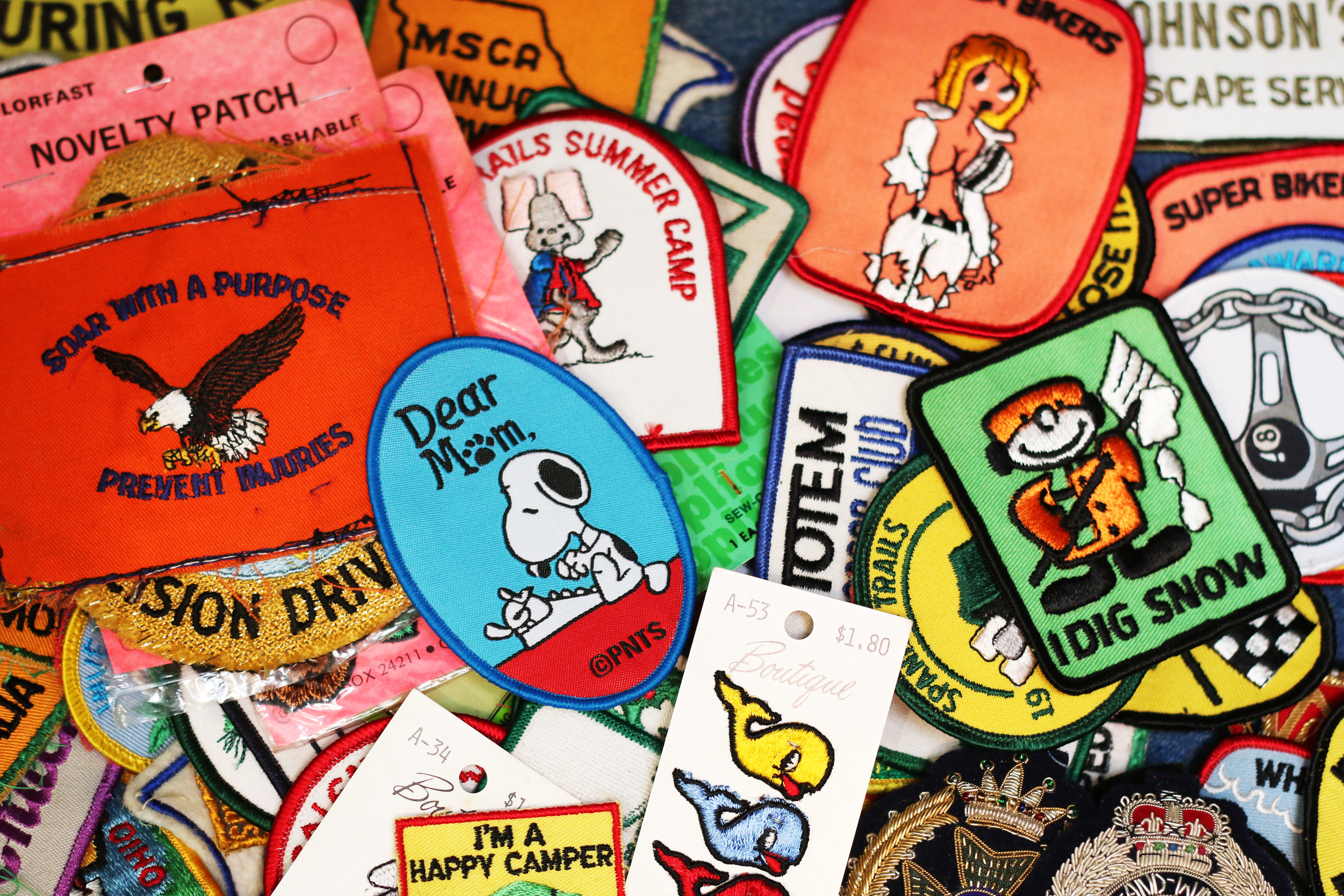
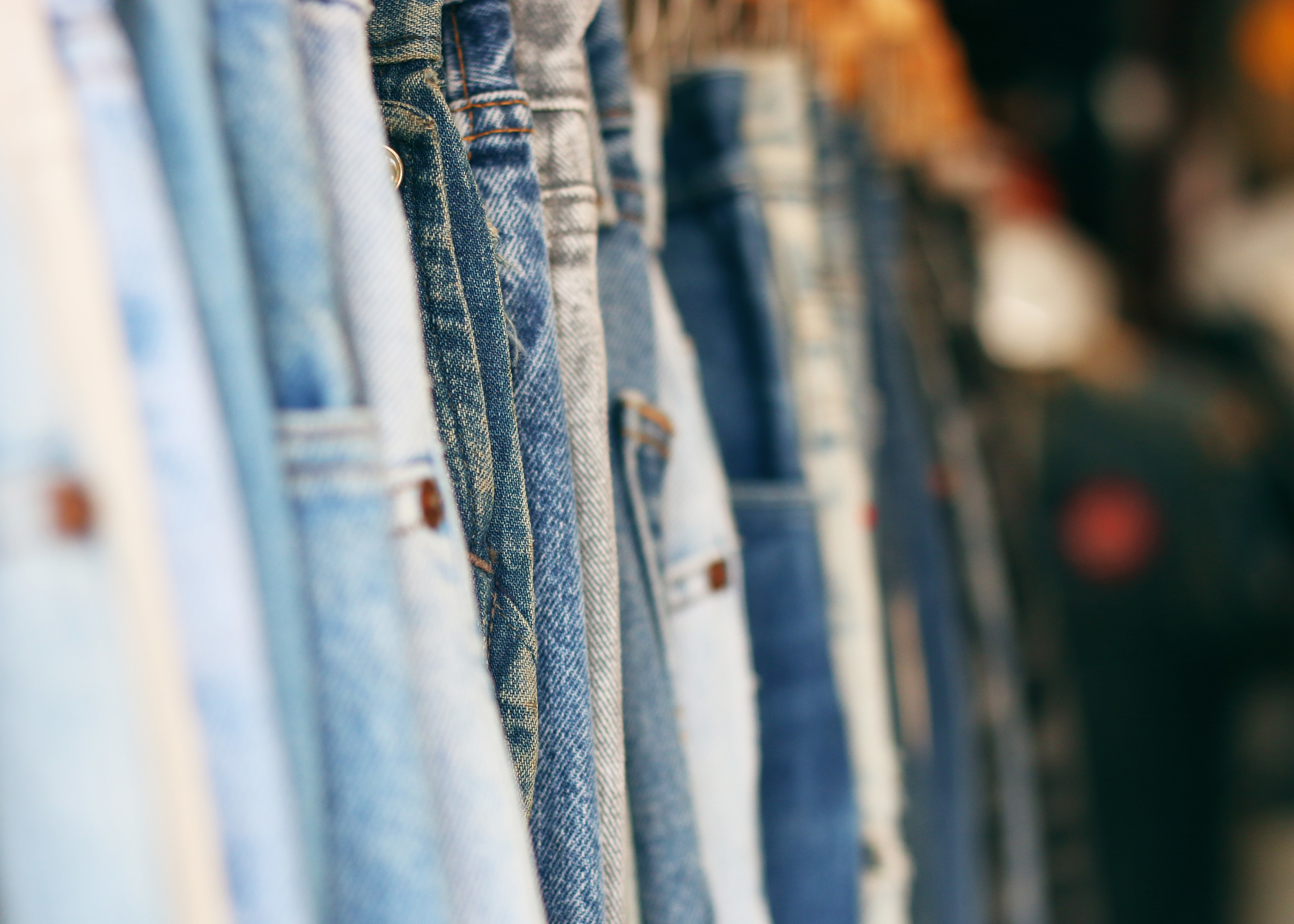
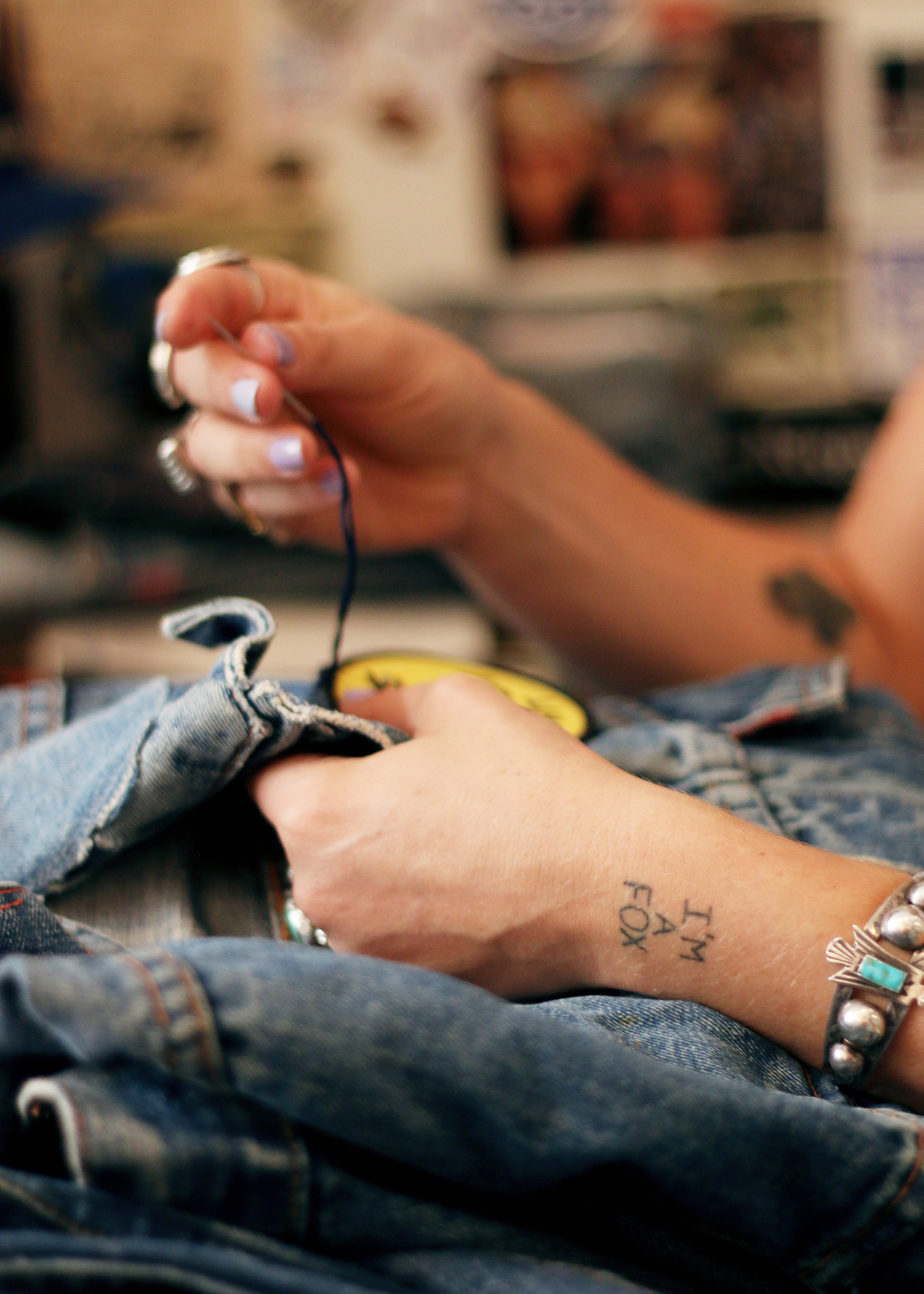
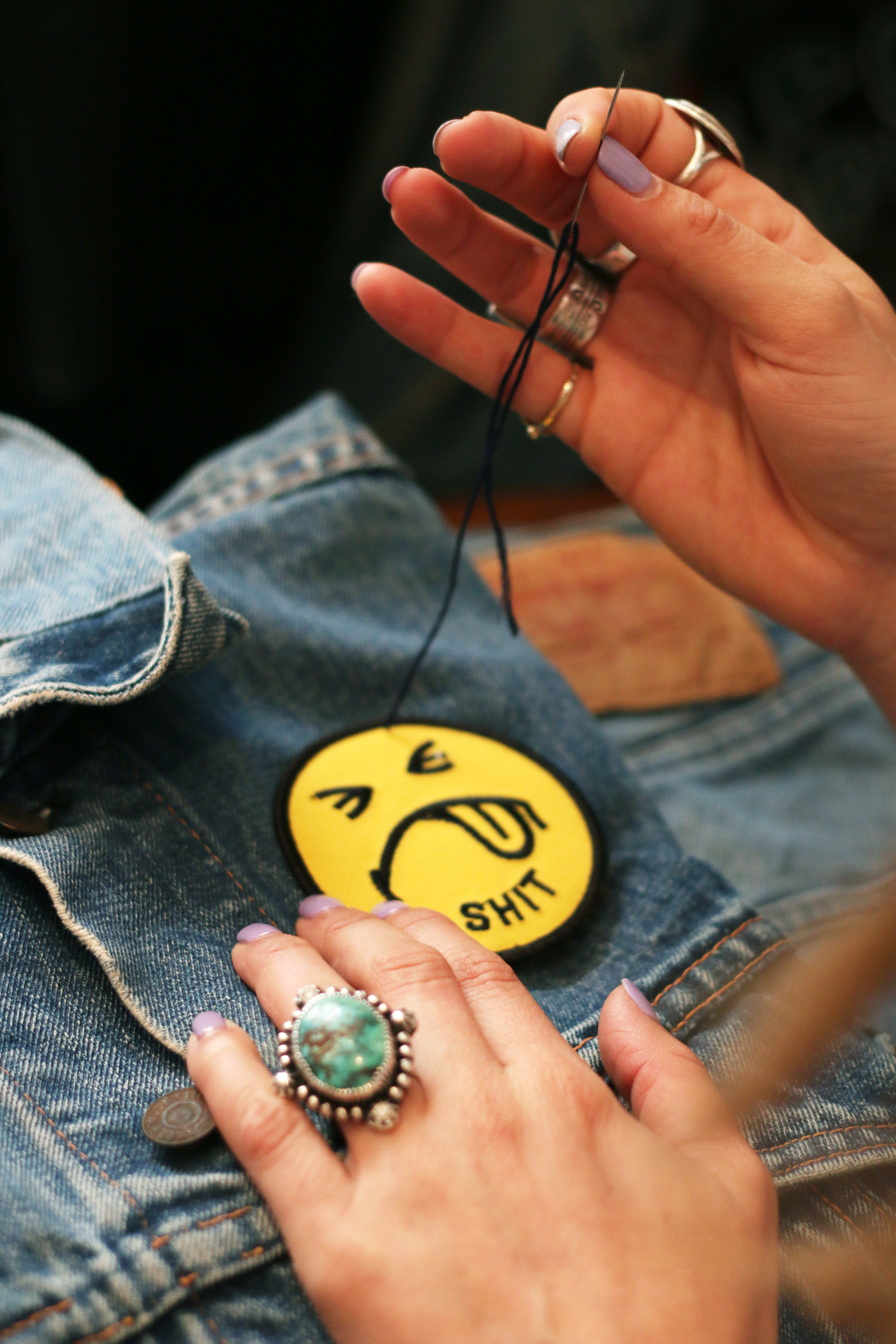
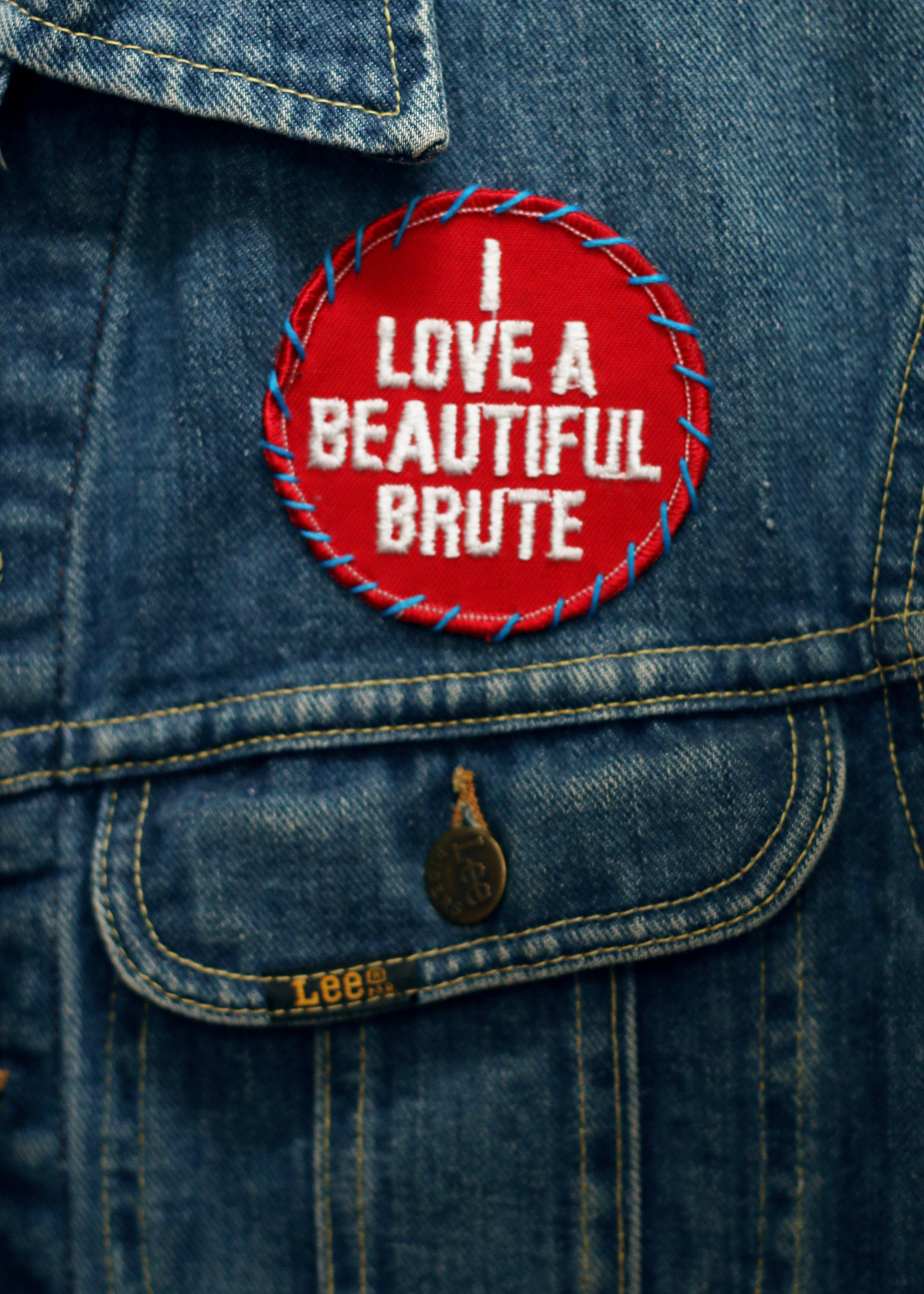
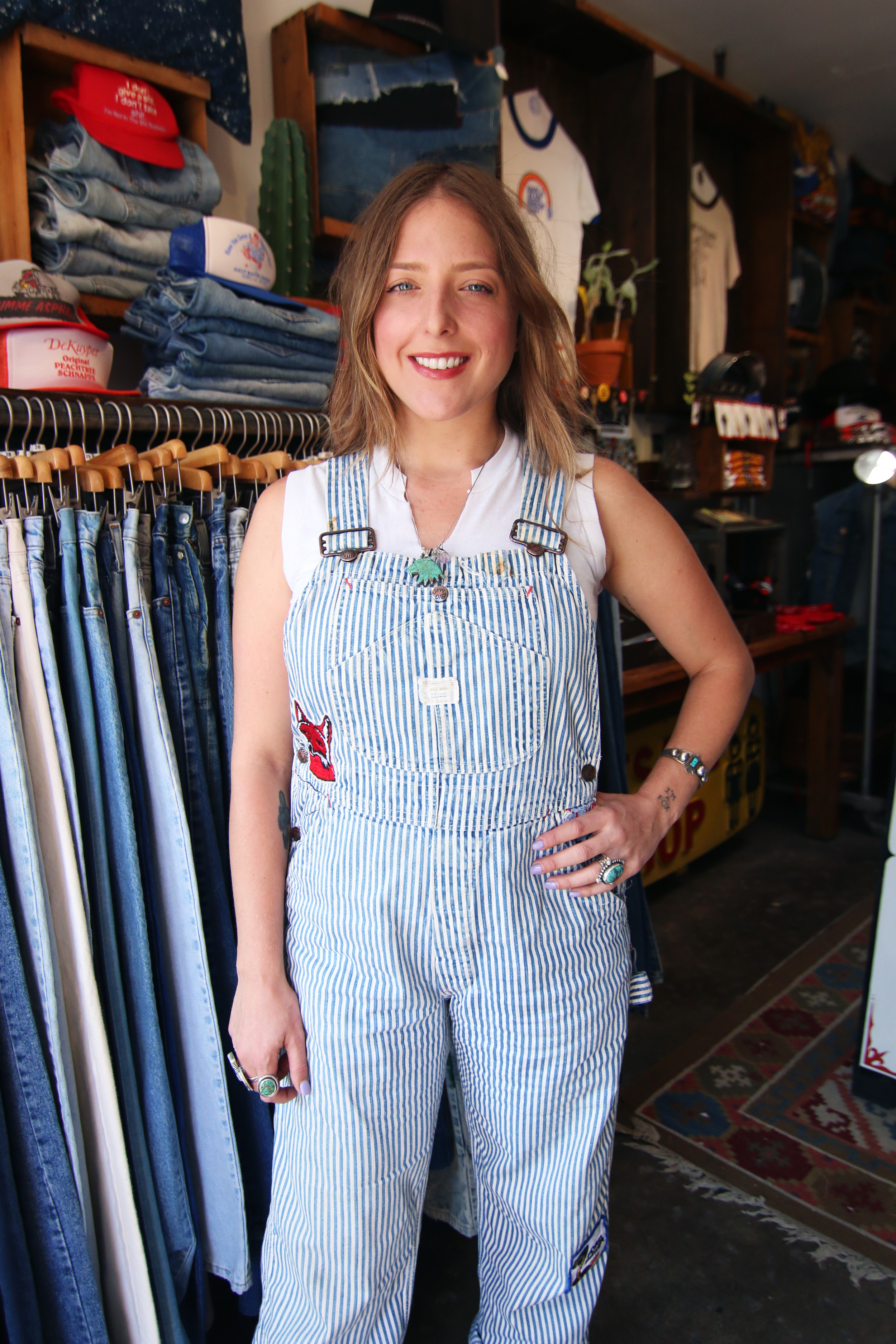
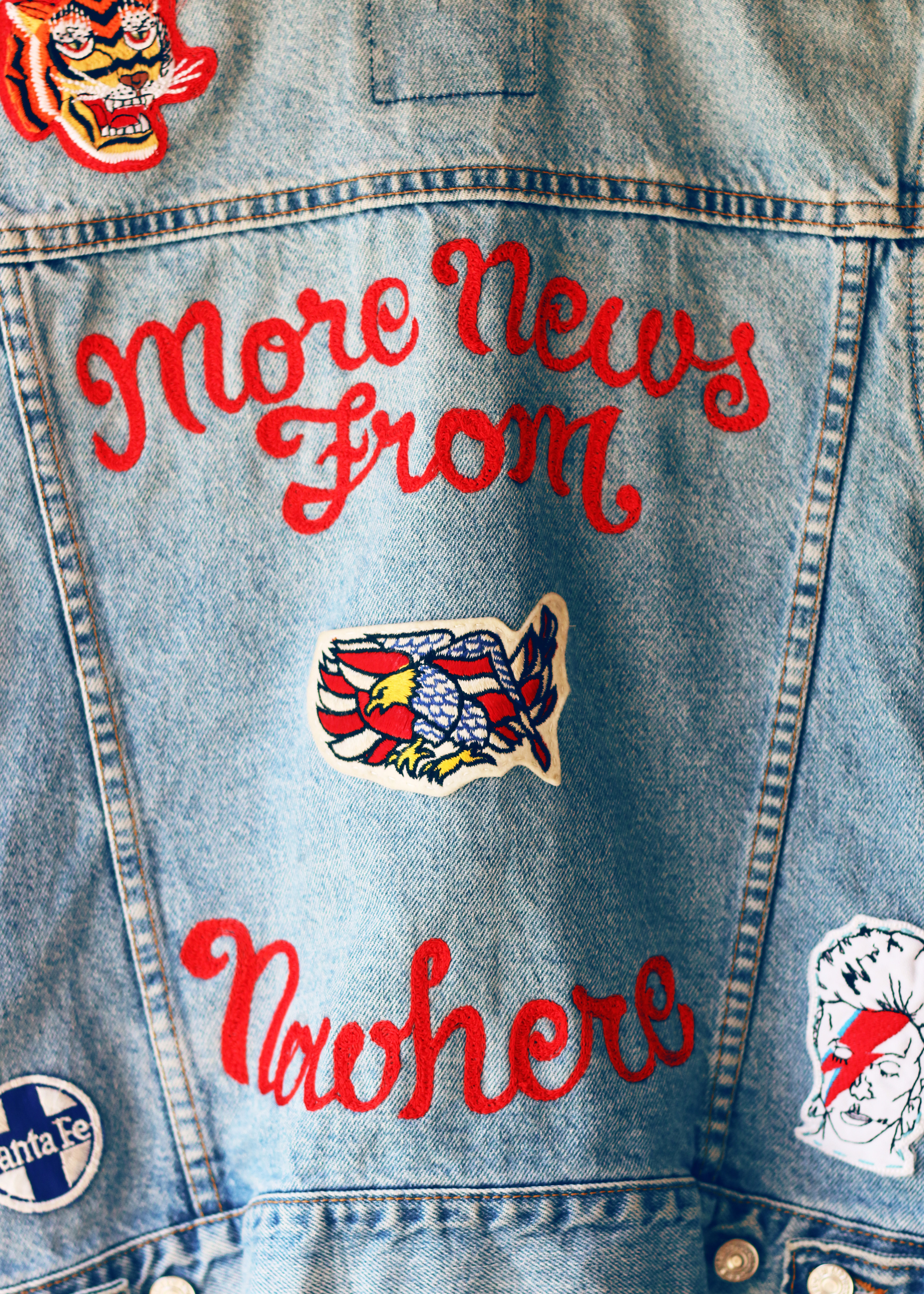
Fox
Who are you?
My name is Fox and I own Foxhole with my husband Jeff. He is an army vet so the name Foxhole made sense because I'm a fox and he's the hole. Laughs. A foxhole is a barrier that soldiers hide behind for warfare, so it just made sense for both of us.
What is your most marked characteristic?
In high school I had my classmates write in my yearbook and this one girl wrote “You are very unique.” I just didn't know how to take that because that's an open-ended compliment. I've always been confident so I took it in a positive light. I know that unique is a very common word, but I really think it describes me and I really think it describes my husband and Foxhole. We pride ourselves on being true to ourselves and I think that's what makes us unique. When you come into our shop, you experience what we do and our passion; it's a unique atmosphere. That's what all of our customers say, and a lot of our customers turn into our really good friends. I think unique is a good word.
What do you make?
We make stuff out of recycled denim. I make women's and men's figures look amazing. Our slogan is "When you look good, we feel great."
We made labels for our denim that says "Fixed by Fox" and then it says "Foxhole." They're one of my favorite things. My dream is to be an old lady and to have my granddaughter or grandson go to a thrift store and find a pair of pants with my label. That will be my ultimate dream.
Why denim?
Denim is arguably the most amazing fabric ever created. It was created so long ago. It has such a history. I love the development of where it was in the beginning, from people working their asses off in the field building railroads, to the elite not touching it - that only happened within the last 15 or 20 years.
I love the characteristics that come along with it after wear and how you can rebuild the fabrication over and over again. There are all these developments within the technology of denim. There's stretch denim that bounces back. There's waterproof denim. There's denim where you wear it and it's heat sensitive. So it's not only about vintage denim. But the reason why I do love vintage denim is because it has a history, and I like things that have a history.
Jeff and I do anything we can do to create and give back. Jeans are such a special garment so it just makes me so happy when people say these jeans make them feel so good. That's the part of designing that I really love: the smaller, more personal aspect of it. At Foxhole, I can follow my piece. The customers will come back and tell me about it. I like to know that people are happy and feeling good. I don't like making money just to make money. I like making money to have people feel good about themselves, and to build something special.
What’s the story behind Foxhole?
I met Jeff at The Echo down the street. Our first date was at the Rose Bowl and it kind of just worked out. We had the same passions. We're very hardworking people that stand behind what we do and don't take any bullshit. I never found someone that completely understands me because I am unique. When I met this man it was just kind of a magical collaboration because not only were we creatively matched but also we understood each other.
So Jeff introduced me to his dad. His dad worked for Edison, the electrical company. He'd just retired - he worked there for like 45 years. He wore Levi's his whole life, and when he was done with his Levi's he would make blankets out of them. The blanket on the bench outside is his denim. When he gave us that, Jeff got really interested in it. I was working at Gap at the time. I was a little bored at the commercial aspect of what I was doing because it was very redundant. I still loved what I did but I wanted to introduce something new because in big corporate companies there's a lot of waste. I don't like wasting anything - especially denim - because there's so much that you can do with it. So I proposed a collection that was called "1960-Mine." It was recycled denim but it was 1,969 pieces so it would be like a small collection of recycled things.
I kind of kept it going and it turned into Foxhole. Jeff and I did FYF and different festivals and flea markets. Then we had a flea market called the Foxhole Pop-up Swap behind our house. It was doing really well, and we were like this is so interesting - we have something here. Every place that we go, people are interested in this and we're making people happy, which we love. So he saw this space and that's kind of how the shop started.
Describe your workspace.
I work in many spaces. I live in Silverlake in an old 1930s brick building that's amazing. My dining room is basically my sewing room. I work there and then we also have an event rental space in 29 Palms by Joshua Tree.
Foxhole is a visual wonderland. Everywhere you look there's something to analyze. There's this beautiful wood wall that my husband created out of reclaimed wood. There's people's denim that I fixed that is waiting to get picked up. There's a pile of denim that I need to fix that's giving me anxiety. And then there's just a sea of denim, t-shirts, patches and pins. We've got button-ups and overalls and things that make me smile that hopefully I can share because I can't keep everything.
Describe your process.
There are multiple processes, but starting with passion and a love for what you do is the first step. We love traveling the world and looking for denim in different places. I love finding the things that have been loved the most. Even if it's a pant leg that was buried in the ground and missing one leg completely, I have to reconstruct it and turn into something that's wearable again.
In terms of my customers coming in, a lot of people hear about us by word of mouth, which is really, really flattering. I'm grateful for it because if someone is telling someone word of mouth that means that they really spoke highly of us. So they come in knowing that they're going to have this experience - I can see it in the excitement in their being and that really makes me excited. I always consult who I'm talking to and see what they want, whether it's just a repair or they need to try it on or they want me to fit it to them. We go through that process on what makes them feel good. The most important thing is to be aware of that person, because I'm not doing this for me. If you don't take into consideration what they want, then it doesn't really make sense. I could do something that I want on everybody, but it just won't have the same outcome because there are so many different types of people in the world.
I also have people come in that have had someone who's passed away or they found a jacket in an attic that was a grandpa's or an uncle's, and they want it to either be fitted or turned into something else. A lot of times we'll turn it into pillows or blankets that they can look at and recall the person or memory. That's really special to me because it's just so magical that I can provide that to people.
Do you have any rituals surrounding your practice?
Every time I work my husband will make me a drink. Usually it has bourbon in it. He's not an avid drinker but he's the best bartender ever. That's kind of our ritual. When I'm sewing he's there showing his support by making me a cocktail. I do love my whiskey and my bourbon.
What is the most challenging part of your process? Where do you find the most ease?
The most challenging part is time, and letting go a little bit. I wish I had 5 of me. I've been looking for an employee for a really long time and I'm very, very picky. I just need someone that is never going to be my status because this is my baby. But I need someone that could get there. So that's just been a really hard process. People want to be here, which I am so grateful for, but I just need the perfect person because I don't have a huge team that is a machine. I need heart and soul. That's really way harder than a corporate kind of atmosphere, because you can just stick people into jobs and make it work like a machine. Here it's a soul thing. Soul and energy.
For ease, when I do sew I love taking apart things and turning them into other things, knowing that something that wasn't perfect can be perfect. But it's perfect in an imperfect way, which is my aesthetic. I just get so much ease out of making something for someone that is imperfectly perfect for them.
How have you learned what you know? Did you have any teachers or mentors who helped shape you as an artist?
I honestly have not had one mentor. I've always wanted a mentor and I've always looked up to people and asked questions. I've always been very confident and confident young people sometimes get segregated and almost shamed. I had a lot of negative mentors who made me a stronger person, which is really amazing and I’ve learned so much.
The support from my family has always been amazing. Even though they don't understand me, they've been supportive. And my grandma. She was always my best friend. She would always give advice even though she was born in a whole different era, was a whole different woman and had whole different morals and understanding. She was a little bit more Jewish prissy and I'm a motorcycle riding, denim wearing, whiskey drinking person. She was very supportive and would give advice even though she couldn't relate directly. I guess she was probably a mentor.
What has denim taught you?
Denim has taught me that there is a role for everything. There are just so many different kinds of denim that are worn for so many different types of things. And the history of it and the way it works and the fades and all of the amazing things that you can put it through: it's so strong- and beautiful, but hard. I think that that is one characteristic of denim that I relate to.
How has your practice shaped your hands?
Oh, girl. You know how denim fades? Like when it rubs off? When you're sewing it, it still has that characteristic. I'm basically sanding the denim when I'm touching everything. There's always blue under my nails, so they look a little rougher.
I've also had to be aware of stretching my fingers and stuff like that. My hands were sore for a while because when I manipulate denim I have a stress on my hands. I have to turn it or move it a certain way or make sure it stays stiff. I'm mindful that my hands are a really important part of my life now. I mean they're a really important part of everyone's life, but when you actually make stuff with them it can be detrimental. I try to not take it too seriously and just be aware and cautious. They're a little rough around the corners due to me sewing all the time, but I try and take care of myself and be a lady.
Fox in Los Angeles, California on June 17, 2016. Photographs by Carina Reimers.
